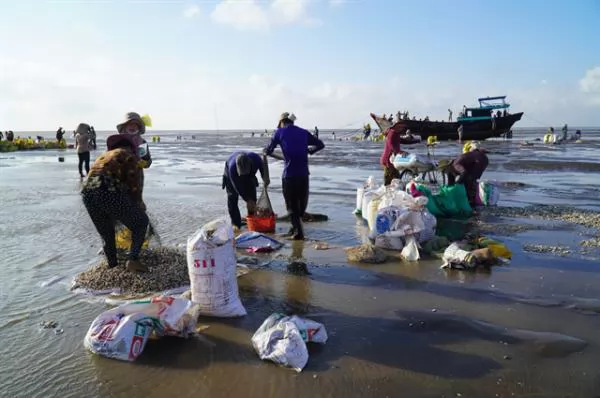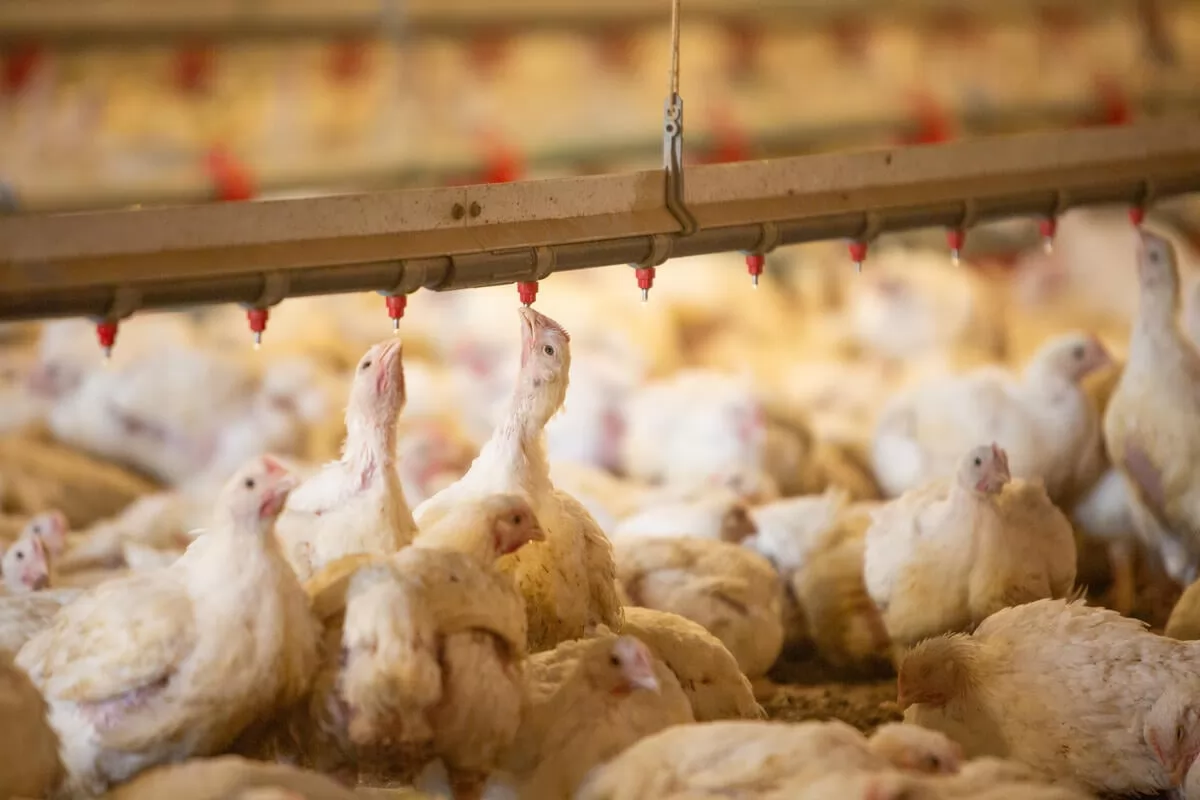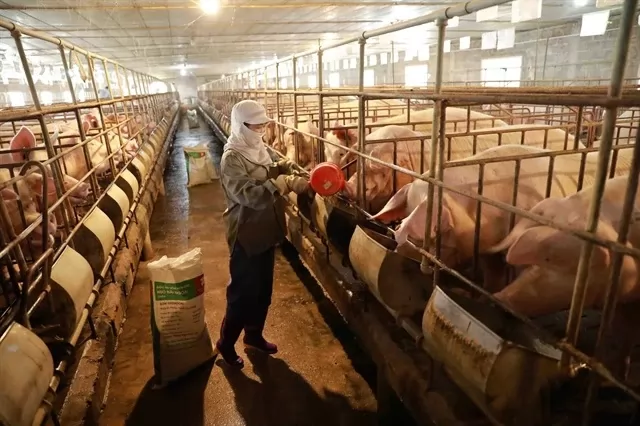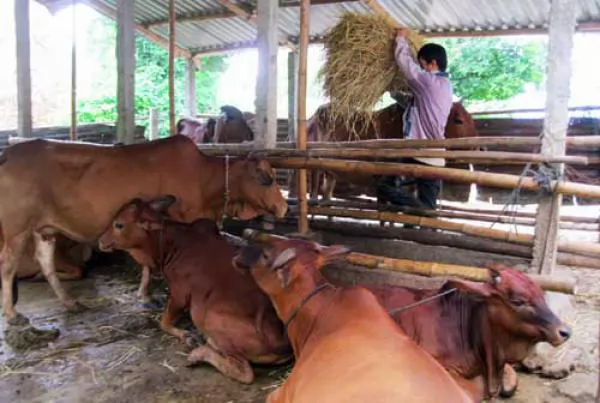Bến Tre expands farming of key aquaculture species

Farmers harvest clams in Bến Tre Province's Bình Đại District. — VNA/VNS Photo Công Trí
BẾN TRE — The Cửu Long (Mekong) Delta province of Bến Tre is expanding farming of some key fisheries products for both domestic consumption and exports.
They include black tiger shrimps, white-legged shrimps, clams, river giant prawns, and tra fish.
Nguyễn Minh Cảnh, deputy chairman of the province People’s Committee, said advanced breeding techniques would be used to increase yield, output and quality.
They would also help adapt to climate change and protect the environment, he said.
The province would develop linkages between small fisheries breeding establishments to create large breeding areas and also link them with businesses to ensure supply of inputs and outlets for their harvests, he said.
Trần Văn Hùng, who has a four-hectare industrial shrimp farm in Bình Đại District’s Định Trung Commune, said he uses advanced breeding techniques and quality shrimp breed stock, buys feed and drugs at reasonable prices and follows breeding schedules set by authorities, and so has been earning good money in recent years.
He produces 12.5-13 tonnes per hectare per crop to earn more than VNĐ4 billion (US$170,000) each time, he said.
The province is developing concentrated farming of key aquatic species in coastal districts in Ba Tri, Bình Đại and Thạnh Phú.
These districts now have 46,000ha of aquaculture farms, including 11,500ha devoted to intensive and semi-intensive shrimp farming.
Đoàn Văn Đảnh, director of the province Department of Agriculture and Rural Development, said aquaculture would be developed in an effective and sustainable manner with a diverse range of creatures bred using methods that suit each locality.
The province would proactively switch from traditional to hi-tech breeding methods, adopt good agricultural practices and origin traceability, and ensure bio-safety and environmental protection, he said.
This year, the province aims to develop at least 500ha of hi-tech farms breeding brackish-water shrimp, taking the total to 2,500ha, he said.
The People’s Committee has unveiled a plan for having 4,000ha of hi-tech shrimp farms by 2025, 2,500ha in Bình Đại, 1,500ha in Thạnh Phú and 500ha in Ba Tri.
Some companies have entered hi-tech shrimp farming in the three coastal districts while the province is investing in infrastructure for hi-tech farming there.
Authorities are also reviewing aquaculture zoning, developing hi-tech aquaculture areas and expanding efficient breeding models like two – stage shrimp farming.
The model requires multiple ponds for breeding shrimp and treating water. Shrimp fry are first bred in a nursery pond for a few weeks before being transferred to the main pond for intensive breeding.
The ponds are equipped with oxygenation facilities, anti-sunlight nets and plastic sheets for covering their beds.
The model offers high yields of 40-50 tonnes per hectare per crop.
The province is soliciting investment in processing, especially of marine shrimp.
It has 11 plants that process seafood for exports, mostly tra fish and clam, with a total capacity of 72,000 tonnes a year.
The province has 47,550ha under aquaculture with an expected output this year of 320,000 tonnes, according to the department.
With a coastline of 65 kilometres, it is also expected to catch 236,500 tonnes of seafood. — VNS
Maybe you are interested

Avian influenza: First global dialogue targets the rising pandemic threat
Recent outbreaks highlight the urgent need for coordinated global action to combat a virus threatening animal health, livelihoods, and pandemic preparedness.

Large livestock businesses are likely to benefit from new regulations
Large livestock enterprises are expected to benefit greatly when the regulation on locations not permitted to run livestock farms takes effect from 2025.

Việt Nam to develop cattle breeding, say officials
HÀ NỘI — Việt Nam's agricultural sector will focus on developing cattle, poultry and aquatic breeding to compensate for a shortage of pork which is expected to hit this year due to African swine fever.





